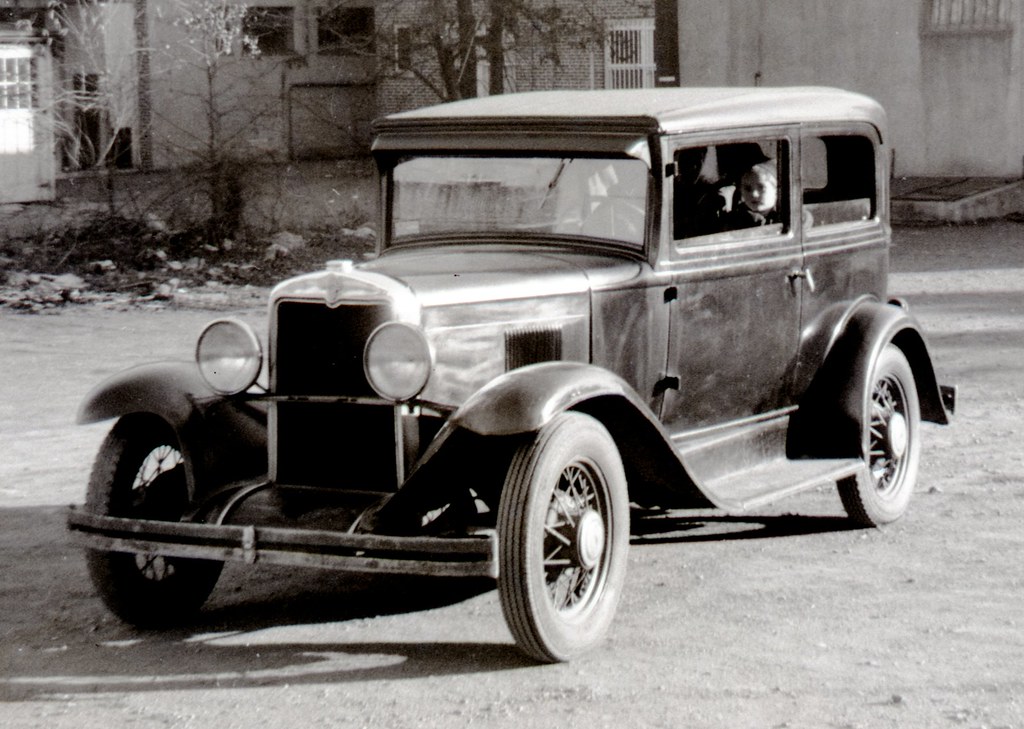
Long before there were expressways and President Eisenhower built the interstate highways, my grandfather, Philip Krut, drove his family from Detroit to Cleveland. What is now a trip that takes less than three hours was an eight-hour journey via country roads. My mother often shared with me the terror of making this pilgrimage with her father behind the wheel to see his family in the late 1920s and 1930s.
Long before President Eisenhower built the interstate highways, my grandfather, Philip Krut, drove his family from Detroit to Cleveland.
I understand the peril because I remember my grandfather driving me somewhere when I was old enough to know that he was a terrible driver. Obviously, he was self-taught. Hands on the wheel at 10 and 2, sitting rigidly in the driver’s seat, Grandpa Krut constantly moved the steering wheel side-to-side with short, jerky motions as he slowly hugged the curb in the right lane. Other drivers honked or passed him, but nevertheless, he persisted.
My grandfather had a tough life before ending up behind the wheel of his Chevy. Born in 1892 in Novo Alexandraska, Lithuania, he was the second of four children of Benjamin the Tall and Leah. When Leah died and his father remarried, ten-year-old Philip was sent by himself to an uncle in Riga to be apprenticed to a tailor. He lost his train ticket to Riga and was crying alone at the station when some soldiers felt sorry for him and bought him another. During his apprenticeship, my grandfather was treated like a slave and paid very little, but he became a fine tailor who could create his own patterns and make a suit very quickly. Philip’s older brother, Louis, came to America first and brought him there in 1912 so he could escape serving in the Lithuanian army. He settled in Cleveland because some of his family was there. After he married my grandmother, Alice Klavir, she insisted they move to Detroit, where she had family. Apparently, she did not get along well with Philip’s sisters, Jenny and Rose.
Thus, Philip had to undertake driving trips to Cleveland to visit his brother and sisters. My mother, Evelyn, remembered her father making her knickers for traveling. She and her two siblings were dressed beautifully – all in clothing he made for them. Leaving at 4:00 a.m., they strapped their luggage on the running board of the car and put little stools on inside for the children because they always took extra passengers. In that era, their day-long drive was all back roads. On one trip, Phillip slipped over into a ditch and the local farmers were afraid to come near the car because they thought they were all dead. Amazingly, despite having no safety features in cars back then, no one was hurt. Perhaps his exceedingly slow driving speed paid off on this occasion. My grandfather only drove Chevys, and the featured image is what I imagine he was driving the day of their accident.
Once they arrived in Cleveland, they always had a wonderful time. They loved to hang out in Aunt Jenny’s kitchen, where she made all kinds of goodies. My mother’s cousin Alter said that whenever his mother made her garlic carp, he knew his Uncle Philip was coming from Detroit. She made taiglech (carrot candy) and other delicacies my mother loved. Her husband, Uncle Rubin, used to drink buttermilk sprinkled with pepper. My mother had many fond memories of Cleveland, especially staying with her cousin Ann. Ann’s father owned a bar and delicatessen, and they lived above it. They had a slot machine in the bar, and he would give them slugs so they could play for hours. Ann’s family always had a maid upstairs. My mother and her cousin took baths together and slid in the tub, flooding the floor with water. The maid had fits, but my mother remembered it as pure fun.
Philip made the trek to Cleveland for every bar mitzvah and wedding because his entire family was there. As my mother remembered it, the treacherous trip on rural roads was worth it for the wonderful memories of running wild with her cousins, doing whatever they wanted. Their parents ignored their hijinks, so they used to get on the stage and sing at these parties.
I feel blessed that my mother shared her memories of the road trips to Cleveland and what she did there as a child. She and her sister recorded the stories of their childhoods, with some hilarious disputes between them, on audio tapes. I transcribed them before our old tape recorder bit the dust. When Mom died, I inherited all of her photo albums. Her tales from her childhood are a treasure as well as a reminder for me to keep writing so I leave my stories for my children and grandchildren.
I invite you to read my book Terribly Strange and Wonderfully Real, join my Facebook community, and visit my website.
Boomer. Educator. Advocate. Eclectic topics: grandkids, special needs, values, aging, loss, & whatever. Author: Terribly Strange and Wonderfully Real.


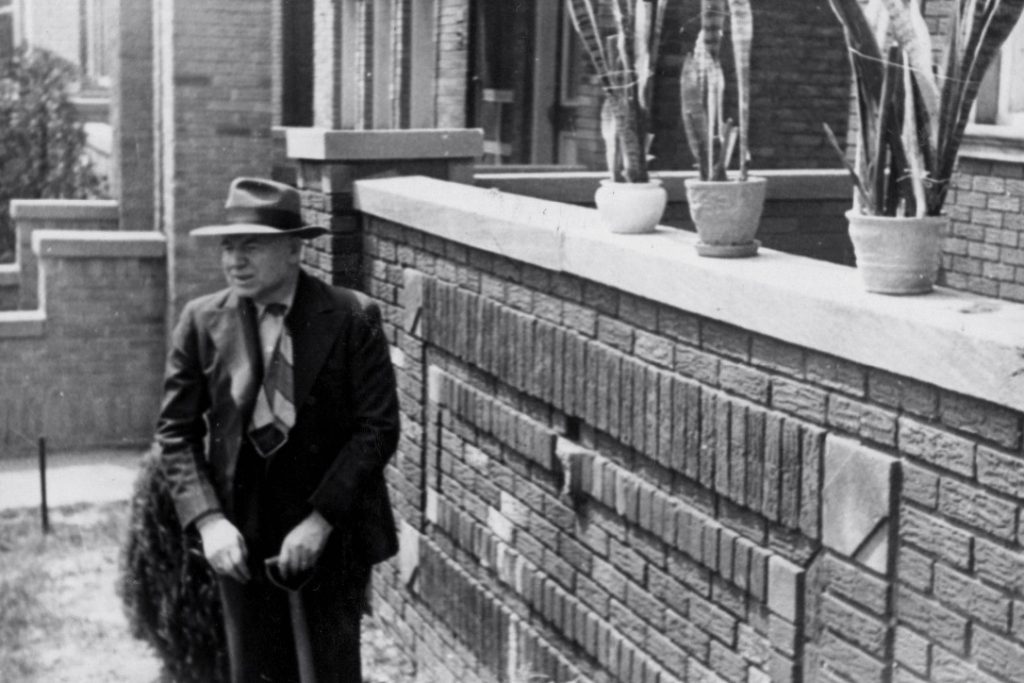
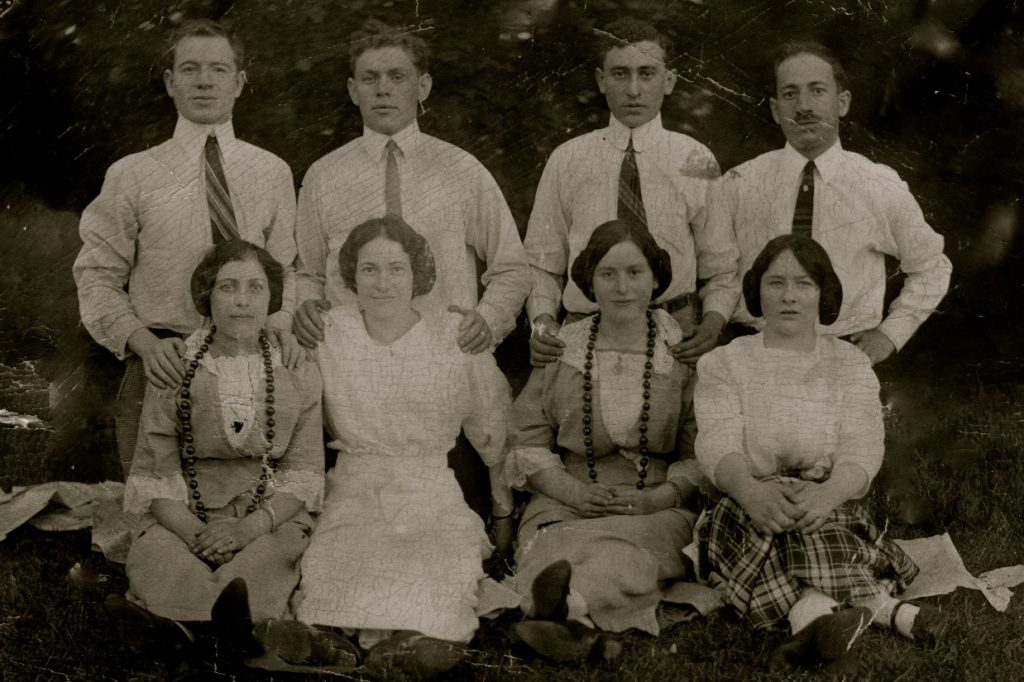
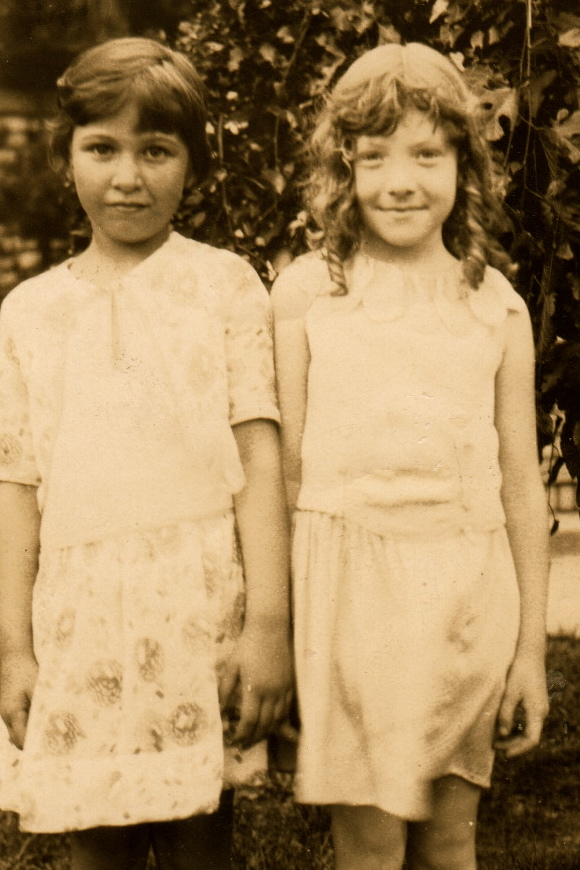
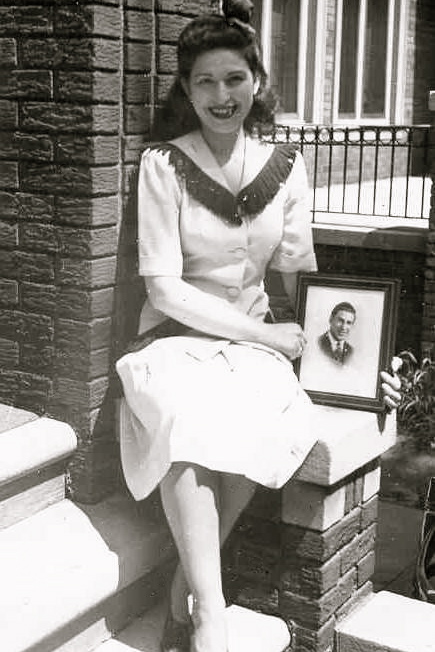
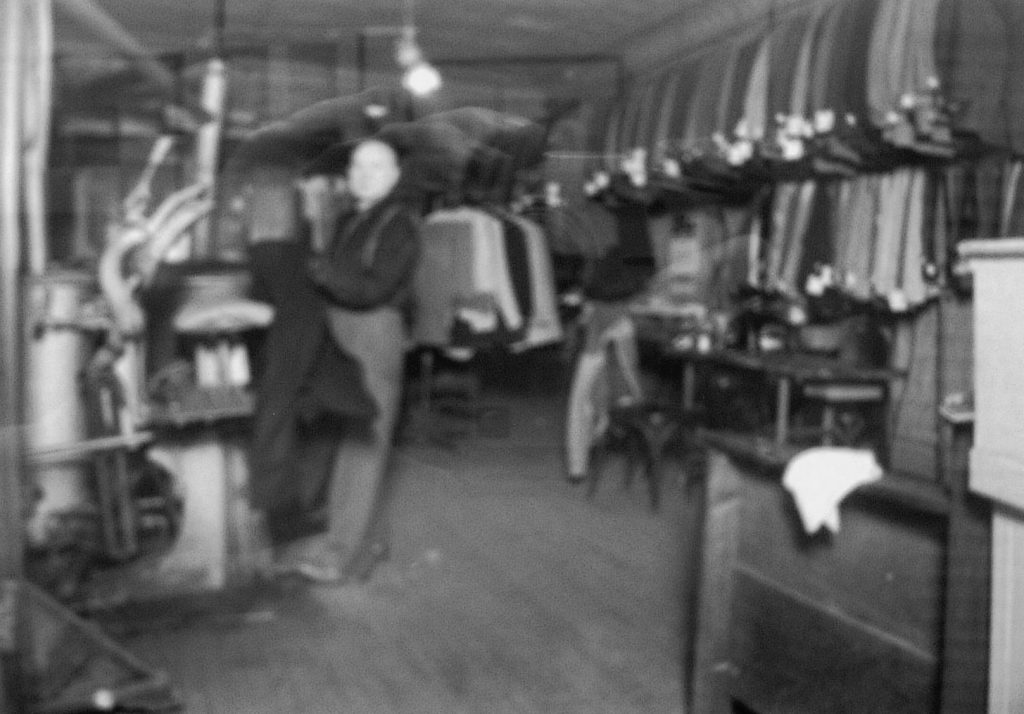

Laurie, you have taken this prompt and, having first referenced this rigorous road trip, run with it — play on words very much intended — into a lovley family mini-memoir. Having driven between Milwaukee and Boston, mainly on I-90, I know how easy that stretch is now, but can only imagine what it was like “back in the day.” And thank you for sharing with us the “treasures” both the stories and the photos — from these cherished family memories. I do hope your next generations appreciated them as well as all the stories that you have written.
Thanks, John. I was rather stumped by this prompt until I remembered my mother’s story about ending up in the ditch when my grandfather drove to Cleveland.
Wonderful story, Laurie, full of remarkable family memories. What lives our forebears led! And how great to have those family stories still, and to pass them on. The peril of travel and accidents resonated with my story too. Thank you, Ralph Nader.
It’s hard to believe we all survived. In your story, the consequences were far worse. I still remember being annoyed by seatbelts and throwing all of the kids loose into the back of our station wagon so they could play. Hard to imagine now.
This is a spectacular story, Laurie–I enjoyed every sentence, and it’s wonderful the memories the road trips evoked. Coming from a family of tailors, I especially appreciated the photo of your mom in that suit. Your story also brought forth a story that my father used to tell about driving around the US with his father during the summers when Grandpa Max was a traveling salesman. Now I wish I had a photo record of those stories!
Thanks, Marian. I can see we probably have many of those old stories in common. My mother was holding my father’s picture in a frame to send to him during WWII. There is another p[hoto of my aunt wearing it, much to my mother’s annoyance. I used to help my grndfather write up his bills for his tailoring business, but that’s a funny tale for another time.
What a wonderful tale, Laurie! How did our ancestors survive and thrive? What incredible spirit and determination your grandfather showed to learn his craft so well, come to this country, move from Cleveland to Detroit for his bride and manage those road trips, creeping along in that Chevrolet.
I have a great photo of my mother and her sister, sitting on the front of a Packard from sometime in the ’20s. My grandparents (in Toledo) never learned to drive. My mother was their driver until she moved to Detroit during WWII to work for the USO. But my mother would never drive on a highway so the interstate system was useless for her. Your grandfather got the family to where they needed to get to, all in one piece.
Thanks, Betsy. I have often wondered how he learned to drive on his own. He was pretty bad, but I assume there was no DVM testing back then. My father also taught himself to drive when he was 14 and helped his father make deliveries. Unlike my grandfather, he ended up being a good driver.
Sweet memories. You are so lucky to have all the old photos!
I am so glad I scanned so many of them onto my computer. The older I get, the more precius they become.
A wonderful way to build on this prompt–to use the road trips as a window into the cultural and family life of that era. Wonderful vivid imagery kept me from getting at all bored in the back seat.
I imagine my relatives crossed your relatives’ past in Cleveland or Detroit. My grandmother started as one of 9 sisters in Toronto and they fanned out to Cleveland, Detroit, Toledo. Maybe they danced the hora at a wedding together at some point!
We will have to look into that, Dale. All of my grandparents came from Lithuania and that was their social circle once they came to America.
My Grandpa also came from Lithuania, whereas Grandma and all those sisters came from Russia. I’m still betting that they ended up attending at least one wedding together.
That’s possible!
Wonderful family memories Laurie!
There is so much I wish I had asked my grandparents and parents and didn’t – now of course it’s too late.
And your story reminded me that my father drank buttermilk!
But did he add pepper? That was such a strange detail my mother remembered on her audiotaped story of her childhood. I’m not sure I would have asked my parents questions if they hadn’t first offered some details of their lives. I never asked my grandparents, which is a great regret. When my cousin and I took the same grandfather in my story to see Fiddler on the Roof, his one comment was, “It wasn’t like that.” Wish my adolescent self had asked a fallow up question about what it was like.
Wonderful story, Laurie, and great photos! Glad you remembered these stories of an earlier generation and shared them with us.
Thanks, Suzy. I’m so lucky to have these stories and photos.
You’ve hung a wonderful family story on the structure of these frequent journeys, Laurie. The photographs add so much. You also stimulated me to understand that so much of clothing — probably until after WWII — was hand-made and NOT to be casually disposed of. You captured a different time beautifully, and you made your family as real as real can be!@
One interesting side story, Charles, is that my mother hated wearing those beautifully made clothes when she was a child. She was ashamed of dressing in what she called homemade clothes and begged her parents to let her buy things from Hudson’s basement. Later in life, she regretted not keeping some of the things her father made for her.
Goodness Laurie, I’m sure he didn’t add pepper, but my grandmother, who ran a small Catskill hotel and was an excellent cook, added a sour pickle to the bowl when she ate her own delicious chicken soup!
And that same grandmother – who was from a small village near Odessa – was taken by my aunt and uncle to the original production of Fiddler. Unlike your grandfather, my grandmother said, “That village is just like mine.”
Interesting!
Nice family history, nice pictures (your Mother and her cousin were beauties), nice pickle in the chicken soup, nice of those soldiers to buy your grandfather a new ticket (he should have attached an Apple AirTag to the first one), nice evocation of time past. And the clock keeps ticking.
Thanks, Jonathan. I love trying ti imagine how life felt for my parents and grandparents and am grateful to have some of the memories written down.